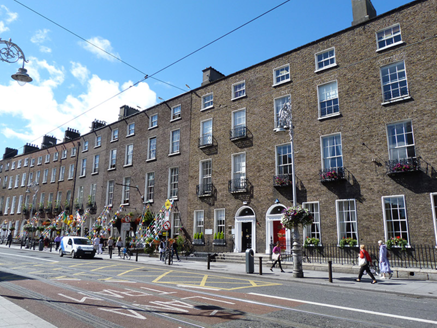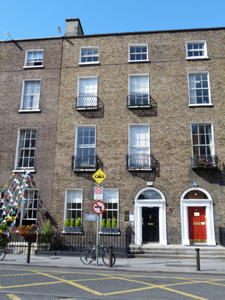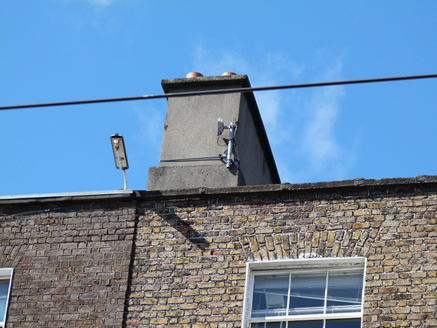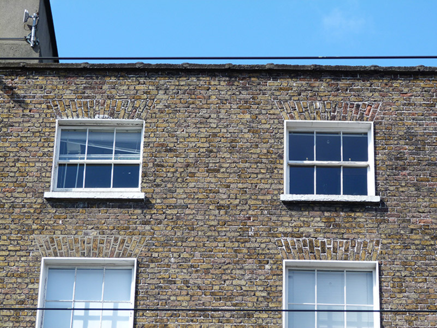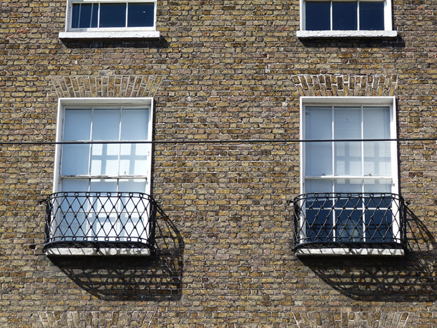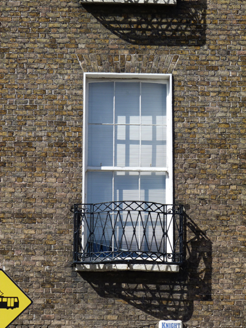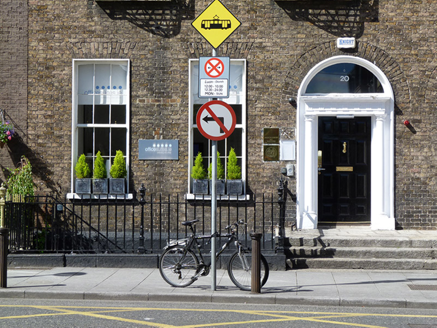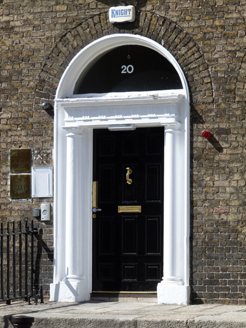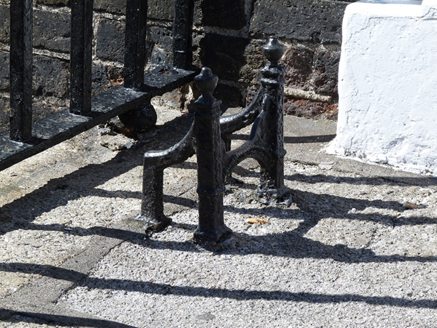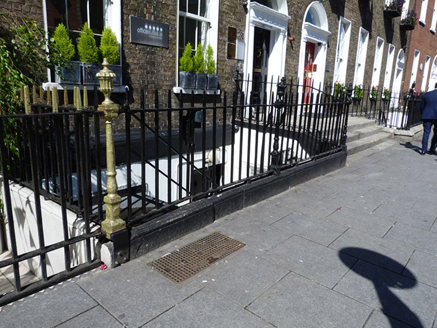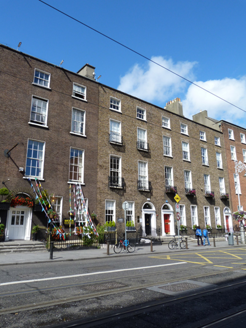Survey Data
Reg No
50920217
Rating
Regional
Categories of Special Interest
Architectural, Artistic
Original Use
House
In Use As
Office
Date
1805 - 1825
Coordinates
315723, 233135
Date Recorded
26/08/2015
Date Updated
--/--/--
Description
Terraced two-bay four-storey over basement former house, built c. 1815, now in use as offices. M-profile pitched roof, hipped to north-end, hidden behind brick parapet with granite coping, rendered chimneystacks to south party wall with clay pots. Buff brick walls laid in Flemish bond over granite plinth course and rendered walls to basement. Square-headed window openings with brick voussoirs, masonry sills and patent reveals, cast-iron balconettes to first and second floors. Rendered surrounds to basement opening. Six-over-six timber sliding sash windows with horns, three-over-three to third floor. Round-headed door opening with rendered reveals, Doric columns on plinth stoops supporting cornice and frieze with triglyphs, plain glass fanlight and raised-and-fielded twelve-panelled timber door. Shared granite entrance platform, with cast-iron boot scraper, accessed via four granite steps flanked by cast-iron railings with decorative corner posts on carved granite plinth, enclosing basement well to south. Street-fronted, located on west side of Harcourt Street.
Appraisal
A typical Georgian terraced house, the well-balanced and restrained façade is ornamented by the classical doorcase and the iron work balconettes and railings. The Doric doorcase, which is paired with a similar doorcase to the north, was the work of a skilled artisan and contributes to the artistic character of the building. According to Casey (2005) 'In No. 20 a curiously old-fashioned and richly carved doorcase between the first-floor rooms contains the harp and scroll motif seen at Clonmell House.' Harcourt Street was opened in 1777 by John Hatch, barrister and Seneschal of the Manor of St. Sepulchre. Development was sporadic during the early history of the street, though it included the construction of Clonmell House for John Scott, later Earl of Clonmell, on the west side of the street, No. 17 (50920214). The second Earl sold the house and lawn in 1810, the north and south wings were subsequently demolished. This house was built on the site of the former south wing.
